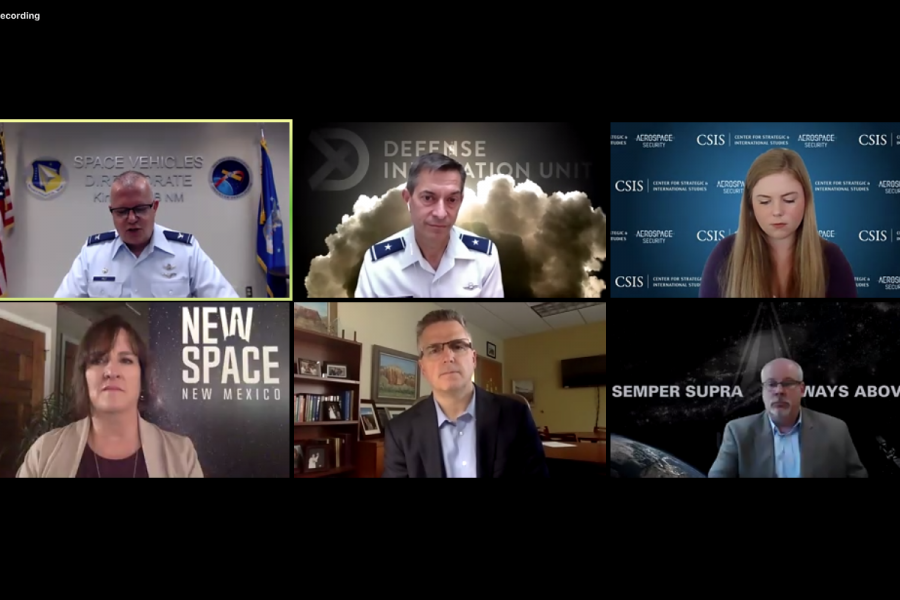Economic fallout from the COVID-19 pandemic threatens to undermine the growing U.S. commercial space sector and, potentially, U.S. space superiority, according to a new report by a panel of government experts released on July 28.
Investors are pulling back to conserve cash at the very time this emerging industry needs it most, said Brig. Gen. Steven J. Butow, director of the space portfolio at the Defense Innovation Unit, who co-authored State of the Space Industrial Base 2020, with U.S. Space Force Chief Scientist Joel B. Mozer; Col. Eric J. Felt, director of the Air Force Research Laboratory’s Space Vehicles Directorate; and Thomas W. Cooley, the directorate’s chief scientist.
The report goes well beyond the COVID-19 threat and includes 39 recommendations for government and industry to ensure a robust commercial space industrial base. All four co-authors spoke at an online event staged by the Center for Strategic and International Studies.
“Some companies have cash on hand and are prepared to hunker down,” Butow said, but companies with high capital burn rates “could very well dry up and blow away.”
Based on discussions and recommendations from a virtual conference of public- and private-sector space leaders convened in May by NewSpace New Mexico, the report includes results of a survey of several dozen space companies about the impact of the pandemic on their bottom line. Butow said even those firms positioned to survive will “hit the pause button on new activities,” which in turn will impact their fragile supply chains.
Because America’s rivals—Russia and China—are not free market economies, their industrial partners are insulated from such market forces. “In a centrally planned economy,” he said, “you can ride out times like that more easily.” The result, the report concludes, presents “a dangerous opportunity for near-peer competitors to challenge or surpass the U.S. in space.”
For U.S. companies, “in the aftermath of the virus pandemic, traditional private investors may become reluctant to fund space technologies due to higher-risk and longer time horizons,” the report warns. “Financing gaps between early-stage companies and commercialization, and an overall lack of liquidity for the space technology ecosystem, also complicate financing within the new space industrial base.”
But the answer is not to write blank checks. Indeed, Felt noted that when asked if the government should just offer money, private sector players said “No! Don’t distort the market.”
To preserve the U.S. space industrial base from COVID-19 effects, the report recommends that the government:
- “Stimulate private investment” by awarding new DoD contracts or contract modifications to prioritize “hardware-focused launch vehicles and spacecraft to stimulate critical U.S.-based supply chains.”
- Temporarily relax contracting policies to increase flexibility.
- “Accelerate actions required to form a U.S.-based Space Commodities Exchange.” This would help diversify and grow investment in the industry and increase resiliency during future disruptions to the US economy.
Other recommendations include:
- Investing in jointly funded public-private partnerships to develop dual-use, commercial/government space capabilities and enabling technologies.
- Guarding against predatory exploitation by China, among others, that might seek to acquire technologies by any means possible.
- Developing a more poweful future workforce, beginning with engagement in K-12 education and continuing through endowing university chairs in areas directly supporting industry needs.
- Securing supply chains through increased understanding of the commercial and security vulnerabilities they face and by strengthening trust and resilience by focusing on developing domestic and allied suppliers for parts and components.
